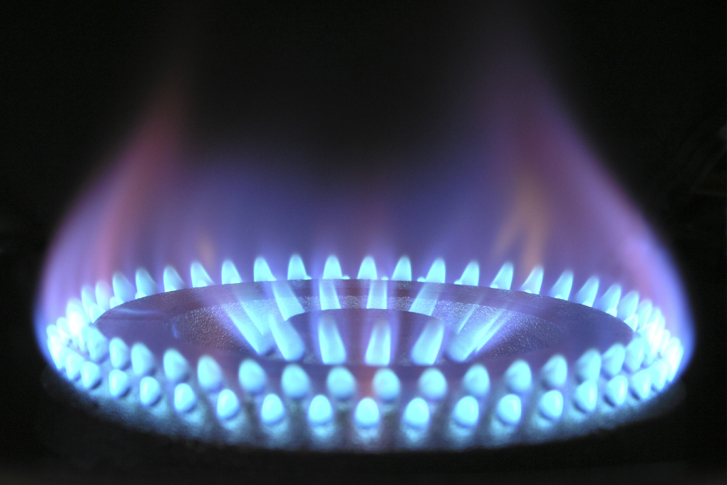
10 Things you need to know about oil boilers
When we’re contemplating a heating system upgrade, we usually have two options: gas or oil heating. Both options are capable of firing up your boiler and keeping your home warm, and both have their pros and cons. All of which should be taken into consideration before deciding. Here are the top ten things you need to know about an oil-fired boiler system for your home.
1. Oil Boilers in the UK
In the UK, oil is usually reserved for what are known as ‘wet’ heating systems where the oil-fibred boiler heats the water that provides central heating and hot water. There are over four million homes in the UK currently not on the main gas network, so they’re not as rare as you might think.
2. Fuel Accessibility
One of the biggest differences between a gas boiler and an oil boiler is that oil has to be delivered to you by road and stored in a tank that is either bought or rented from a supplier, while gas is obtained by an existing gas connection. When buying oil, there are two options: cash on delivery (COD) or a seasonal delivery contract. With a delivery contract, the supplier guarantees that the homeowner will always receive enough oil for their boiler after estimating the consumption and scheduling regular deliveries. COD is by far the cheapest option of the two, where the only requirement is that you have enough cash to make the payment for the oil that’s been delivered.
3. Types of Oil Boilers
There are two types of Oil Boilers – heat only and combination condensing boilers. Oil fired combination boilers have an internal hot water storage tank. This supplies the hot water, instead of getting access to water on demand like gas boilers as is the case with gas boilers.
4. Oil Boiler Energy Efficiency
According to OFTEC the running cost of a higher efficiency boiler is around £942 per year. Since a law passed in April 2007, all new boilers must have a Sedbuk energy efficiency of 86% or higher. The reality is that only condensing oil-fired boilers meet that target. Usually, a new condensing oil-fired boiler will have an efficiency rating of 92% to 93%, when compared with 85% for other new non-condensing boilers and between 60% to 70% for most older systems.
An oil boiler purchased from a reputable company should be every bit as efficient as one of their gas powered counterparts, if not more so. Oil is extremely efficient as a fuel and gives a good return on every unit of energy. To improve the efficiency of an oil boiler, you should follow these tips:
- Always use a room thermostat
- Thermostats and the boiler need to be wired in an interlock to prevent short cycling when either hot water or heating isn’t required
- The hot water tank must have a cylinder thermostat
- Hot water and heating must always be programmed separately
- Thermostatic radiator valves must be placed on radiators
5. The Cost of Oil Boilers
According to Which? Magazine, the average cost of using an oil boiler to heat a three-bedroom home is around £1,355 per year. A typical gas boiler will average between £770 and £950. However this depends on the efficiency of the boiler. Oil boilers can also cost anywhere between £1,180 and £2,700, depending on the oil boiler manufacturer, model and capacity.
6. Recycling Waste to Create Heat
One of the main advantages of oil boilers is that they offer a much higher efficiency as they’re able to recycle the waste gases that build up in the flue. This provides more energy production, which in turn, improves your homes heating and how water production.
7. Oil Boiler Flue
An oil boiler can be fitted with open flues. It’s recommended that a balanced flue is used since it’s far more efficient and versatile. A flue is a pipe or duct designed to connect heating appliances to fresh air and allow combustion gases to be safely released. This is often referred to a ‘balanced flue’ or ‘open flue’.
8. Hot Water Storage
Both oil and gas-powered boilers work in much the same way, except for the fact that oil boilers also have a hot water storage tank. This stores hot water for later consumption, whereas a gas boiler relies on on-demand water heating. He average oil tank size ranges from 1000 litres and 1360 litres, with some larger domestic tanks being up to 2500 litres.
9. Types of Heating Oil
There are two types of heating oil used in domestic heating, gas oil and kerosene. Most common oil boilers in the UK run on Kerosene. This burns very clean and leaves minimal deposits of smoke or soot. The other type of heating oil is known as red diesel. This oil is much heavier and is generally used in old agricultural or commercial boilers.
10. Service and Maintenance
If your boiler isn’t serviced annually, it poses a higher risk of breaking down. However, you shouldn’t only be concerned about the cost of fixing your boiler, but also the risk it can pose to your health. As is the case with any fossil fuel burning appliance, inadequate servicing can cause carbon monoxide generation, which is of course hazardous you your health. All components of your boiler should be checked, cleaned or replaced if required to make sure that the boiler is functioning at optimum levels. Even the water tank should be checked for contamination.
Not servicing your oil boiler regularly can lead to long term damage – this can lead to even more expense when you have to have your oil boiler replaced rather than repaired. Whereas, a well-maintained oil heat system can last for up to 20 years. If you’re noticing problems with your oil boiler, get in touch with our team today.

